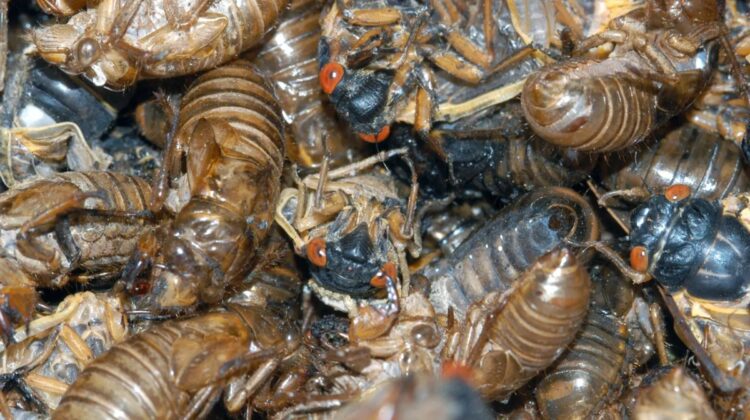
2024’s Apocalypse Bingo Card can put a big fat cross through “insect invasion” as two mega-broods of cicadas are about to synchronize their uprising in America for the first time in 221 years. How can we know that? Because these peculiar insects have a passion for prime numbers.
Periodical cicadas don’t emerge often – once every 13 or 17 years, to be precise – and when they do they arrive in their millions, and even billions. This year, fate has aligned so that two broods will emerge from the ground, marking the first time this has happened in over two centuries.
Brood XIII makes an appearance every 17 years, while Brood XIX pops up every 13 years. This year, they’re going to have to learn to share, as they’ll be wriggling topside together.
The numbers might seem random, but there’s method to the madness.
“Thirteen years and 17 years are special because they’re both prime numbers, which means it’s really hard for a predator to have a cycle that syncs up with them,” explained mathematician Professor Hannah Fry in a TikTok video. “Also, they almost never synchronize with each other – 13 and 17, kind of missing each other – apart from every 221 years.”
The last time we got this bumper brood of cicadas was back in 1803, so while we’re seeing in the double brood with the likes of Taylor Swift and Lil Nas X, the last Brood X double bill was going down to the tune of Beethoven.
When it’s time for cicadas to emerge, they wriggle from where they’ve been lurking in the ground for over a decade and shed their exoskeletons. The once-in-their-lifetime event is what has to happen so that they can reproduce, and it’s a short-lived mass orgy that unfortunately isn’t excused from the threat of sexually transmitted pathogens.
A fungus called Massospora cicadina is well-known among the scientific community, an opportunistic pathogen that crashes the cicada orgy and spreads from insect to insect via sexual contact. Effectively an STI, the fungus can spread from an infected female to other cicadas as they attempt to copulate.
“It’s a sexually transmitted fungus,” said John Lill, a cicada expert and chair of biology at George Washington University, to IndyStar. “They engage in normal courtship behavior, yet their abdomen is a big fungal mass. Instead, the attempted copulation results in spreading the fungus even more.”
It’s a different beast to the fungi that inspired The Last Of Us, but it’s still a mind-altering one that changes the cicadas behaviors. Infected males will sing for female mates, but they’ll also flap their wings, which attracts males. As the fungus continues to eat away at the cicada’s reproductive organs, the insect will pass it on to every other cicada they encounter. Eventually, the eating away becomes so severe the cicada’s butt actually falls off.
Lucky you for landing on this Earth at just the right time to see it all unfold in real time. Popcorn at the ready, chaps.
Correction: The text has been updated to clarify that it is these specific broods of cicadas that have not emerged simultaneously since 1803.

Leave a Reply